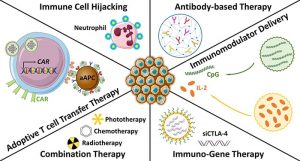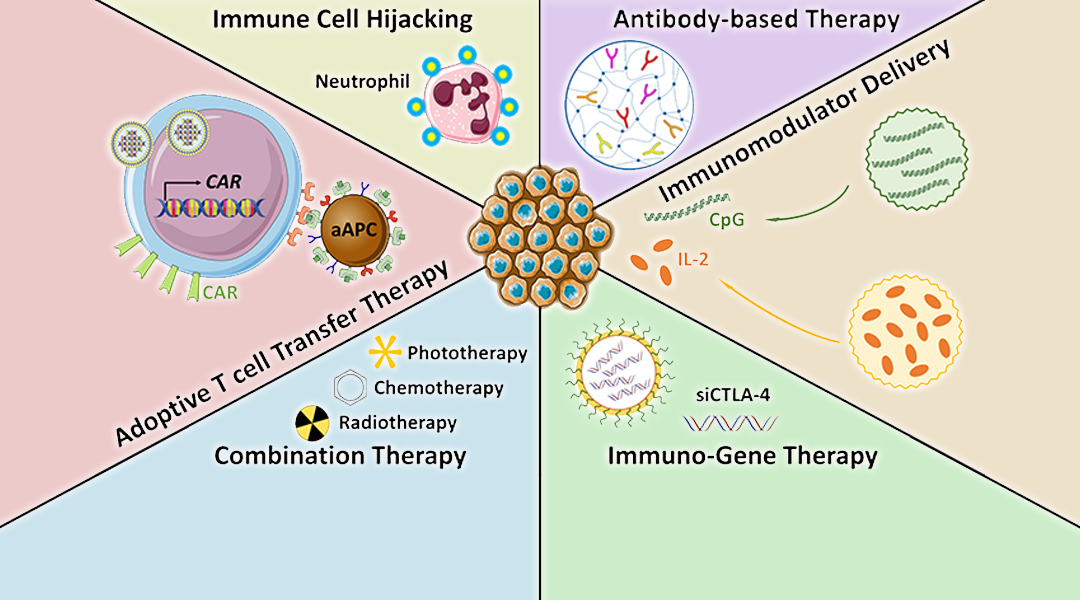Cancer immunotherapy is an emerging treatment that harnesses the power of a patient’s own immune system to fight cancer. Immunotherapy has recently shown dramatic clinical success inducing long-term survival of patients of various cancers. Due to the unprecedented therapeutic effect in advanced-stage cancers, this therapy is fast transforming the standard-of-care for many cancer patients.
Although promising, there are several pressing challenges facing cancer immunotherapy that limit its full therapeutic potential in the clinic. One of the major challenges is the fact that only a small fraction of treated patients respond to immunotherapy. Another major challenge is the immune-related toxicity that is often associated with efficacious immunotherapies.
Biomaterials are engineered natural or artificial materials that are designed for various biomedical applications. These materials can be designed to deliver therapeutics specifically to the diseased tissues or cells at the right timing and doses. Recently, a large number of novel biomaterials have been utilized to focus immunotherapies specifically in tumor tissues or related immune cells and thus enhance the therapeutic effect while mitigating the toxicities of cancer immunotherapies. Such efforts have given rise to an emerging field of research, called immunoengineering, which aims to precisely control the immune responses using biomaterial engineering approaches. Applying immunoengineeri ng approaches in cancer treatment has led to the development of a number of promising novel strategies in cancer immunotherapies.
ng approaches in cancer treatment has led to the development of a number of promising novel strategies in cancer immunotherapies.
In a review article in WIREs Nanomedicine and Nanobiotechnology titled, “Immunoengineering with biomaterials for enhanced cancer immunotherapy”, Xie, Wei, and Tang provide an overview of the state of the art in engineering biomaterials for enhanced cancer immunotherapy. They first discuss how biomaterials are designed to enhance various modalities of cancer immunotherapies by showing a number of recent examples, including cell-, antibody-, immunomodulator-, and gene-based immune-related treatments and their combinations with conventional therapies. Challenges and opportunities are also discussed in applying biomaterials engineering strategies in the development of future cancer immunotherapies.
Kindly contributed by the Authors.

















